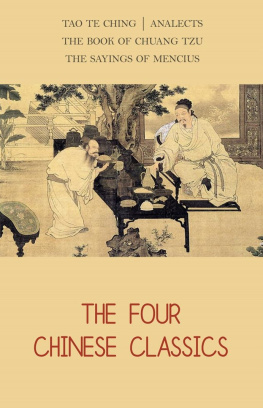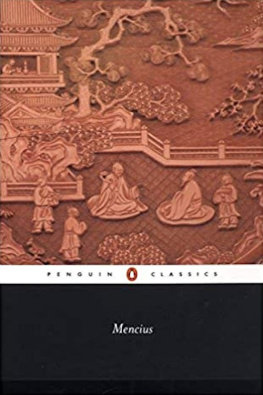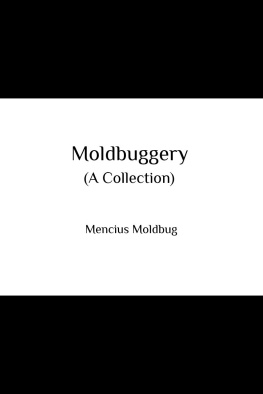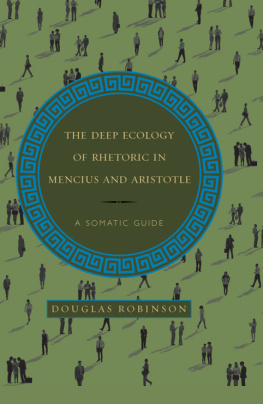Trbner's Oriental Series
CHINA
In 5 Volumes
I Leaves from My Chinese Scrapbook
Frederic Henry Balfour
II Mediaeval Researches from Eastern Asiatic Sources Vol I
E Bretschneider
III Mediaeval Researches from Eastern Asiatic Sources Vol II
E Bretschneider
IV Religion in China
Joseph Edkins
V The Mind of Mencius
E Faber

First published in 1882 by
Trbner & Co Ltd
Reprinted in 2000 by
Routledge
2 Park Square, Milton Park, Abingdon, Oxon, OX14 4RN
Transferred to Digital Printing 2007
Routledge is an imprint of the Taylor & Francis Group
1882 E Faber
All rights reserved. No part of this book may be reprinted or reproduced or utilized in any form or by any electronic, mechanical, or other means, now known or hereafter invented, including photocopying and recording, or in any information storage or retrieval system, without permission in writing from the publishers.
The publishers have made every effort to contact authors/copyright holder of the works reprinted in Trbner's Oriental Series. This has not been possible in every case, however, and we would welcome correspondence from those individuals/companies we have been unable to trace.
These reprints are taken from original copies of each book. In many cases the condition of these originals is not perfect. The publisher has gone to great lengths to ensure the quality of these reprints, but wishes to point out that certain characteristics of the original copies will, of necessity, be apparent in reprints thereof.
British Library Cataloguing in Publication Data
A CIP catalogue record for this book
is available from the British Library
The Mind of Mencius
ISBN 0-415-24488-9
China: 5 Volumes
ISBN 0-415-24287-8
Trubner's Oriental Series
ISBN 0-415-23188-4
ISBN 978-1-136-38112-6 (ePub)
Reason itself points out that, in the long-run of years, the moral stan-dard of a city or a nation is the grand secret of its prosperity.... The sinews of a nation's strength are truthfulness, honesty, sobriety, purity, temperance, economy, diligence, brotherly kindness, charity among its inhabitants, and consequently good credit among mankind....And will any man say that there is a surer way of producing these characteristics in a people than by encouraging and fostering, and spreading and teaching, pure scriptural Christianity?Prirmry Charge of the Right Rev. the LordBishop of Liverpool.
TRANSLATOR'S PREFACE.
IT seems proper, in introducing to the English public the following work, that I should briefly state the reasons which induced me to undertake this translation.
Most students of Chinese have, I suppose, felt the hitherto well-nigh insuperable difficulty of obtaining anything like a clear and orderly view of the principles underlying and imbedded in the Confucian philosophy. Yet such a view, most necessary to the statesman, is well-nigh indispensable to the missionary. He certainly will find himself at an immense advantage in making use of whatever principles of eternal truth are already recognised by those to whom he is sent. Finding in this work of the Rev. E. Faber the very key required to unlock the mysteries of Confucianism, I felt I should be doing good service to my brethren in the Chinese portion of the mission-field by making it easily accessible to them in an English dress. Being warmly encouraged in my undertaking by two well-known missionaries and Sinologists, I have at length accomplished what I hope will prove to be a work of permanent utility to all really interested in the Chinese. Whilst neither statesmen nor philosophers will find the system of Mencius perfect, either as to its political economy or its moral teachings, the one will respect that economy as having proved practical in its working for nearly 3000 years, whilst the other will confess that it contains more morality than others besides the Chinese have ever been able fully to grasp or completely to carry out. In his researches into human nature, Mencius will be found to have anticipated many of the results of modern psychological study. The appeal made by both Mencius and Confucius, in support of their alleged Divine mission, to the conformity of their doctrines with the essentials of the human mind as discovered by observation, rather than to any external credentials, may suggest one reason why the appeal to the miracles has generally such little weight in China. Whilst agreeing in the main with the opinion of my friend Mr. Faber, I have not thought it necessary to indicate the few cases in which my personal convic- tions occasionally compel me to differ from the view he takes. My share in the work having been carried out in the brief intervals of. rest afforded to a missionary on furlough by deputation-work (comprising in thirty months some thirty thousand miles of travel, and nearly six hundred addresses from pulpit and platform), will account for any inaccuracies which, in spite of every endeavour to avoid them, may possibly have crept in. In returning to the missionary field, as I hope shortly to do, I shall be sufficiently rewarded if my labours are found eventually to have contributed in any degree to the much-to-be-desired transference of the Chinese from the sway of the mind of Mencius to the easy yoke and rightful dominion of the mind of Christ.
EXETER, November 1881.
PREFACE.

MENCIUS has already been translated into several European languages. Notwithstanding this, the doctrines of this ancient Chinese philosopher are almost unknown; the reason of which is the general lack of system which prevails amongst Chinese authors. One may often read through the production of a Chinese mind, and receive various impressions from it, but yet find it hard to get a systematic view of the whole. Nevertheless it is to be supposed that the embodied thoughts of the most important of Chinese authors is in itself a coherent whole. Of course the Chinese did not think scientifically, in the modern sense; we find, therefore, that instead of a wellarranged system, there is an all-pervading affinity in the truths they proclaim. Each intuition stands in intimate connection with the others. This is especially true of Mencius. So far none but slight attempts have been made to give a characteristic view of the teaching of Mencius. The necessity for a more thorough displaying of this has become increasingly perceptible to me during my literary laboiirs for the Chinese in the last few years. The educated Chinese have, indeed, no practice in the systematic treatment of any subject, but yet such strikes them forcibly when they meet with it. Still it was not this consideration which induced me to present the Chinese with a systematic exposition of the doctrine of Mencius, but rather the desire of bringing about a well-founded reversion to dogmas universally and well known throughout China. Mencius is better suited than any other Chinese author to serve as a foundation for an explanation of the doctrine of the Gospel in harmony with the mind of China. In the year 1872 the plan of this work was commenced, and it has since been gradually carried out. The first idea was to proceed in a similar way to that pursued with the Digest of the Doctrines of Confucius. The conviction soon forced itself upon me that it would be better to go more into detail. In the first place, it was necessary to find a practical arrangement. It did not appear desirable to lay down any known plan as a basis, because the foreign matter would become so much misshapen. Mencius should himself speak, and his teaching find the most natural, yet well founded and easily recognised grouping. How far this has been successful the reader now has the opportunity of proving. Only it should be borne in mind that the present work is only an extract from a much larger yet unpublished work, intended for Sinologists. I hope at a later date to issue a supplement with the necessary additions in Chinese character. In that the translation, as far as is necessary, will be supported by proofs, and antiquarian and historic notices will find a place.














